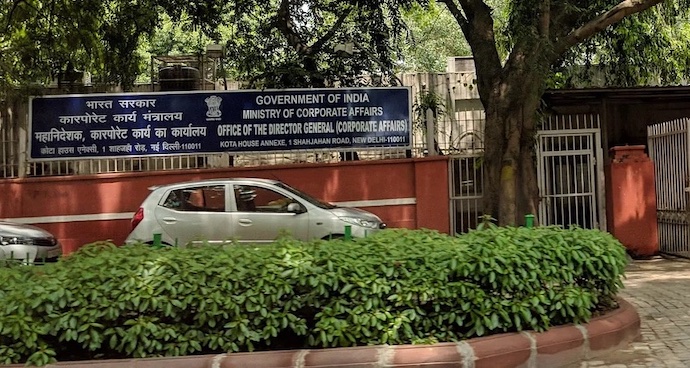What is a Tax Residency Certificate?
A Tax Residency Certificate in the UK is a certificate issued by HM Revenue & Customs (HMRC) confirming an individual or entity’s residency for tax purposes in the UK for a particular financial year. In today’s world of earning income, whether it’s salary, dividends, royalties, or capital gains from different countries, this certificate serves as proof of UK residency. It also provides critical support for leveraging the benefits of Double Taxation Treaties (DTTs), avoiding double taxation, and reducing withholding taxes on overseas earnings. Whether you’re an expatriate, foreign investor, or a multinational corporation, understanding what is a tax residency certificate in the UK
and how to obtain a tax residency certificate in the UK will facilitate cross-border tax planning and compliance, making it smoother when dealing with multiple jurisdictions.
Why Do You Need a Tax Residency Certificate in the UK?
Avoiding Double Taxation
Many other countries have DTTs with the UK, which caps withholding taxes on interest, dividends, and royalties. Unlocking those concessions prevents the same income from being taxed by both the source country and the UK.
Proof of Residency for Financial Institutions
Banks and other financial service providers located outside the UK require a TRC to open bank accounts, purchase securities, or send money at low tax rates.
Corporate Structuring
Multinational companies have TRCs showcase group tax residency structures to mitigate allegations of profit shifting and aid the smooth repatriation of earnings.
Expatriate Employees
UK expats overseas come with a TRC to claim relief through UK DTTs so that they do not suffer from onerous foreign withholding taxes.
HMRC Compliance
The UK Self Assessment comes with its advantages, such as attaching a TRC, which helps defend non-UK tax claims, eliminating the chances of future disputes.
Eligibility Criteria for a Tax Residency Certificate in the UK
A taxpayer seeking a Tax Residency Certificate in the UK has to comply with applicable residence tests under the Statutory Residence Test (SRT):
- Automatic UK Resident if you:
- Spend 183 days or more in the UK in the tax year.
- Have your only home located in the UK and spend no less than thirty days there.
- Automatic Overseas Resident if you
- Spend fewer than sixteen days within the UK.
- Works full-time outside of England and spends less than appx three months within the UK, almost unused 91 days.
- All other cases without either automatic qualification will look at ties to England and work hours as governed by the sufficient ties test.
It is only possible to obtain a Tax Residency Certificate (TRC) for the UK if you are classified as a UK resident for tax purposes. While non-UK residents cannot obtain a UK TRC, they can apply for resident certificates in other jurisdictions.
How to Apply for a Tax Residency Certificate in the UK
The UK tax residency certificate application process can be completed over the Internet, and here are the steps on how to get a tax residency certificate in the UK online:
- Register For HMRC Online Services.
- If you do not have an account yet, register with the Government Gateway and join either personal or business tax services like Commenda.
- Fill Out Form TRC1
Obtain and complete TRC1 (Individual) or TRC2 (Company) forms available on GOV.UK. In addition to your name and address, submit the following:
- Provide your full name and address.
- Submit UTRE/Corporation Tax Unique UTR.
- For individuals, provide your National Insurance Number.
- Specify applicable Tax years.
- Confirm residency assertion under SRT.
- Provide Residency Declaration
- Collect Supporting Documents
- Recent Self-Assessment Submission receipts
- Proof of address within the United Kingdom issued no longer than three months ago, including utility bills or rental agreements.
- National Insurance Contribution Summary
- An employment contract or registration documentation of the corresponding limited company
- Submission Via Electronic Means
- Log in to your HMRC online account, then go to “Other forms” → “Tax Residency Certificate request”. Proceed to submit TRC1/2 plus attachments in PDF format.
- Pay Any Applicable Fees
- As of now, there is no fee associated with applying for a UK Tax Residency Certificate (TRC).
- Await Issuance
- HMRC tries to complete TRC applications within a month, and you can check the status of your account.
For those who prefer paper forms, it is possible to apply for a UK Tax Residency Certificate by sending TRC1/2 forms along with other necessary documents to HMRC. However, this may increase processing times by an additional 2-4 weeks.
Documents Required for the Application
To obtain a Tax Residency Certificate from the UK, ensure you have the following:
- Filled out TRC1/2 Form.
- Self-assessment tax return for the most recently filed year.
- Unique Tax Reference Number or Corporation Tax Reference.
- National Insurance Number (for individuals) or Company Registration Number.
- Proof of Residence: dated within the tax year—utility bill, council tax statement, tenancy agreement, or mortgage statement.
- Business Evidence: recent pay slips or employment contract, Companies House certificate.
- Copy of Passport for expatriates who became UK residents mid-year.
The most commonly cited reason for delays is document gaps- ensure all required documents are provided before submission.
The Application Process: A Step-by-Step Guide
- Pre-Application Planning
- Verify SRT as our UK residency status is confirmed.
- Gather all necessary documents and their digital scans.
- Form Completion
- Filling in details on TRC1/2 has to be done exactly. Omissions or inaccuracies lead to rejections.
- Declare any situations of dual residency with full transparency.
- Submission
- Complete uploads through HMRC’s online portal.
- HMRC Review
- HMRC may ask for clarification, such as proof of address.
- Respond to requests right away, as any delays here will add to the total processing time.
- Certificate Issuance
- After approval, HMRC sends an email with a PDF certificate and posts a signed hard copy.
- Store digital and hard copies for tax submissions with other countries and for authorities.
- Post-Issuance Actions
- Submit them to the foreign tax authority to claim DTAA benefits.
- For foreign tax credit claims, attach them to your UK Self-Assessment submission.
How Long Does It Take to Get a Tax Residency Certificate in the UK?
- Online applications: 4 – 6 weeks, given that all documentation provided is correct.
- Paper applications: 6 –8 weeks plus additional time expected from postal services
- Complex cases: Dual resign holders or companies with sophisticated structures may take between 8 to 12 weeks.
To avoid complications such as fallback to higher withholding rates, apply well in advance of deadlines for foreign tax returns or financial transactions.
Tax Residency Certificate for UK Expats and Foreign Nationals
UK Expats Returning Home
- Proof of Re-Residency: Provide your UK return date evidence (entry stamps, accommodation lease) along with TR01 if you re-entered the country mid-year.
Foreign Nationals in The UK
- Non-Domiciled (Non-Dom) Rules: In the case of high net worth individuals with non-dom status, they are still eligible for a TRC provided SRT is met. However, when filing for tax returns should mark your domicile to prevent issues.
Multinational Companies
- Branch vs. Subsidiary: A foreign parent must apply through TRC2 with audited UK branch accounts and tax residency proof for the head office to have a UK branch. Then post from abroad.
Common Mistakes to Avoid When Applying
- Incomplete Forms: Blank fields on TRC1/2 forms, as well as typos/input errors of UTR numbers.
- Fails to prove residency: Submitting outdated utility bills or leases that lack verification.
- Missing SRT Declaration: Fails to state clearly which SRT test is claimed.
- Not Updating for Mid-Year Moves: Fails to claim adjustments for moves made mid-year, shifting residency in the middle of the year.
- Delayed Responses: ignoring clarification request responses from HMRC, causing application suspension pending review.
Engaging experts who professionally test before applying should help rectify these issues before final application versions are uploaded.
What to Do After Receiving Your Tax Residency Certificate
- File with Foreign Tax Authorities:
- You can submit the TRC to foreign tax authorities or financial institutions overseas. It is possible to apply reduced DTT rates on dividends, interest, or royalties.
- Claim Foreign Tax Credits:
- While completing a UK Self Assessment, attach the TRC as supporting documents for relief claims of taxes paid to other countries to avoid double taxation.
- Share with Banks and Brokers:
- Share the certificate with custodians or banks when they are opening foreign currency accounts or when investing overseas, so that they can take advantage of reduced withholding tax.
- Maintain Digital Backup:
- Save your documents in a reliable document management system appropriately tagged by tax years for audits, alongside other relevant PDFs and signed scanned copies for easy retrieval during subsequent audits.
- Mark Renewal Dates:
- Set reminders noting TRC expiry at the end of the tax year. Mark three months prior as the start date for reapplication preparation.
Making the Most of Your Tax Residency Certificate
Navigating how to apply for a tax residency certificate in the UK is not something you have to do on your own- Commenda provides end-to-end assistance. Our professionals will help you:
- Evaluate your residency status in the UK via the Statutory Residence Test.
- Complete and check your TRC application along with its supporting documents.
- Check submission progress, answer HMRC questions, and accelerate release.
- Inform you on how to use TRC’s DTAA benefits and foreign tax credits.
With Commenda managing all the details, you can confidently focus on global income opportunities.
Frequently Asked Questions (FAQs)
Q. What if I don’t meet the residency requirements?
If you fail SRT, then you are not a UK tax resident for these purposes and hence cannot obtain a Tax Residency Certificate from the UK. You should instead seek one in your actual country of residence to claim DTT benefits from the UK.
Q. Is it possible to apply for a Tax Residency Certificate in the UK through an online portal?
Sure, applications through your HMRC Government Gateway account are streamlined because of tracking options and digital uploads. Thus, the process on how to get a Tax Residency Certificate in the UK online is quite simple.
Q. What is the effect of TRC on withholding taxes?
With TRC restrictions, you may face limited withdrawal rates under the United Kingdom Double Tax Treaties (DTTs) restrictions. Additionally, you may file for foreign tax credits in UK accounts and verify residency status with global financial institutions.
Q. Is there a different procedure for companies?
Corporate applicants use Form TRC2 along with copies of company registration documents, as well as UK branch accounts where applicable, and proof of a head office tax residency certificate.
Q. What if my TRC comes from abroad or is issued in a foreign language?
TRCs are required by law to be issued by certified translators so they can submit translated versions alongside original transcripts when filing to local or foreign tax bodies.











